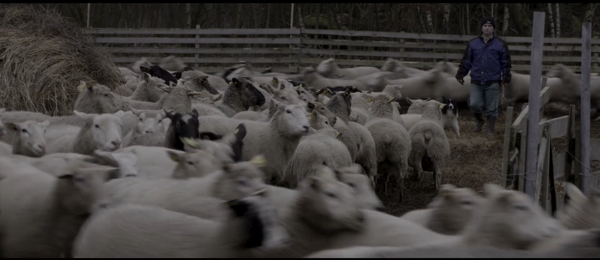
Dir: Martin Pav | Doc, Czech Republic 78′
Wolves are back in the Czech Republic. And their return is causing ructions in the rural population. In his no holds barred look at the social history of man’s relationship with beast, filmmaker Martin Pav examines whether wolves still have a place in a world where drought and climate change is already wreaking havoc on the farmers particularly the vast forested areas of the Czech Republic. Wolves are, at least, a threat that can be controlled.
From an ecological point of view wolves have as much right to exist as humans, but as a voracious predator of livestock, and humans too – if given a chance, they are posing a serious threat now that their numbers are once again growing.
Not everyone is in agreement over how to tackle the wolf issue. Jan Sefc, a livestock farmer, shows how his flock of sheep is being depleted by wolves, as he throws a armful of maimed dead lambs into a rubbish bin. The wolves don’t eat the new borns, they just maul them to death, adding insult to the injuries inflicted. The problem is how to protect them. How do you build a shelter for 3000 sheep? And they don’t only kill lambs and sheep, deer are being heavily predated. “Tt’s like having a pedophile in a kindergarten” he says. For now he manages to keep the wolves at bay by monitoring the area in his truck, but he can’t be there all the time. Mayor Tomas Havrlant supports his view and is determined to gain the support of the government in this growing concern.
But conservationist Jiri Malik takes a different view, and is more concerned with water conservation in the region, seeing drought as the main enemy of farming and food production. He argues water is key to the survival of crops and the next generation. He is working on ways to improve irrigation.
Wolves have been predators in the Czech Republic since the Benedictines first arrived in the 13th century with the motto: “Pray and Work” (Ora et Labora). Records tell of attacks on humans, and the Monks civilising effects allowed the local population to protect themselves with barriers at a time when folklore was dominated by tales of wolves, synonymous with the Devil. The only punishment back then was to be cast out into the wilderness. Gradually wolves were almost entirely exterminated by the mid-18th century.
But they soon found their way back. In Czechia and neighbouring Poland and Slovakia wolves were still being culled up until the 1970s, when they were shot during the hunting season, and still harboured a fear of humans. These legendary beasts can grow to six feet tall, and now, like the foxes in the Britain, they have started to challenge man. Their population is growing again and the farmers are angry. So the Mayor has decided to file a suit against the State to gain protection for the farmers and the local economy, and encourage young people to stay in the region.
Jiri Malik feels that anything that encourages beauty, diversity, stability of an ecosystem: such as wolves, is good. Anything that goes the other way, is bad. Why don’t the farmers guard their sheep, like shepherds did in ancient times?. And this is very much the view of small-holder Lenka Stihlova who takes the wolves side of the dilemma arguing for a modus Vivendi with the animals.
With its sinister occasional score of strings and measuring detached approach, Wolves at the Borders presents a convincing case for each side in this age-old endeavour: how to live in harmony with the animal kingdom. MT
VISIONS du REEL 2020 | STREAMING